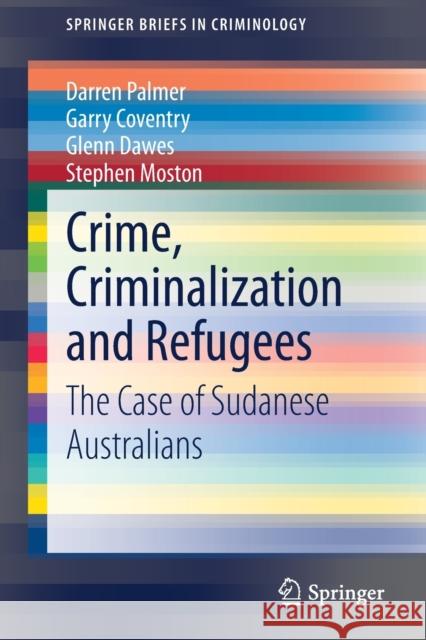Crime, Criminalization and Refugees: The Case of Sudanese Australians » książka
topmenu
Crime, Criminalization and Refugees: The Case of Sudanese Australians
ISBN-13: 9789811561740 / Angielski / Miękka / 2020 / 121 str.
Crime, Criminalization and Refugees: The Case of Sudanese Australians
ISBN-13: 9789811561740 / Angielski / Miękka / 2020 / 121 str.
cena 201,72
(netto: 192,11 VAT: 5%)
Najniższa cena z 30 dni: 192,74
(netto: 192,11 VAT: 5%)
Najniższa cena z 30 dni: 192,74
Termin realizacji zamówienia:
ok. 22 dni roboczych
Bez gwarancji dostawy przed świętami
ok. 22 dni roboczych
Bez gwarancji dostawy przed świętami
Darmowa dostawa!
Kategorie:
Kategorie BISAC:
Wydawca:
Springer
Seria wydawnicza:
Język:
Angielski
ISBN-13:
9789811561740
Rok wydania:
2020
Wydanie:
2020
Numer serii:
000437962
Ilość stron:
121
Waga:
0.20 kg
Wymiary:
23.39 x 15.6 x 0.76
Oprawa:
Miękka
Wolumenów:
01
Dodatkowe informacje:
Wydanie ilustrowane











